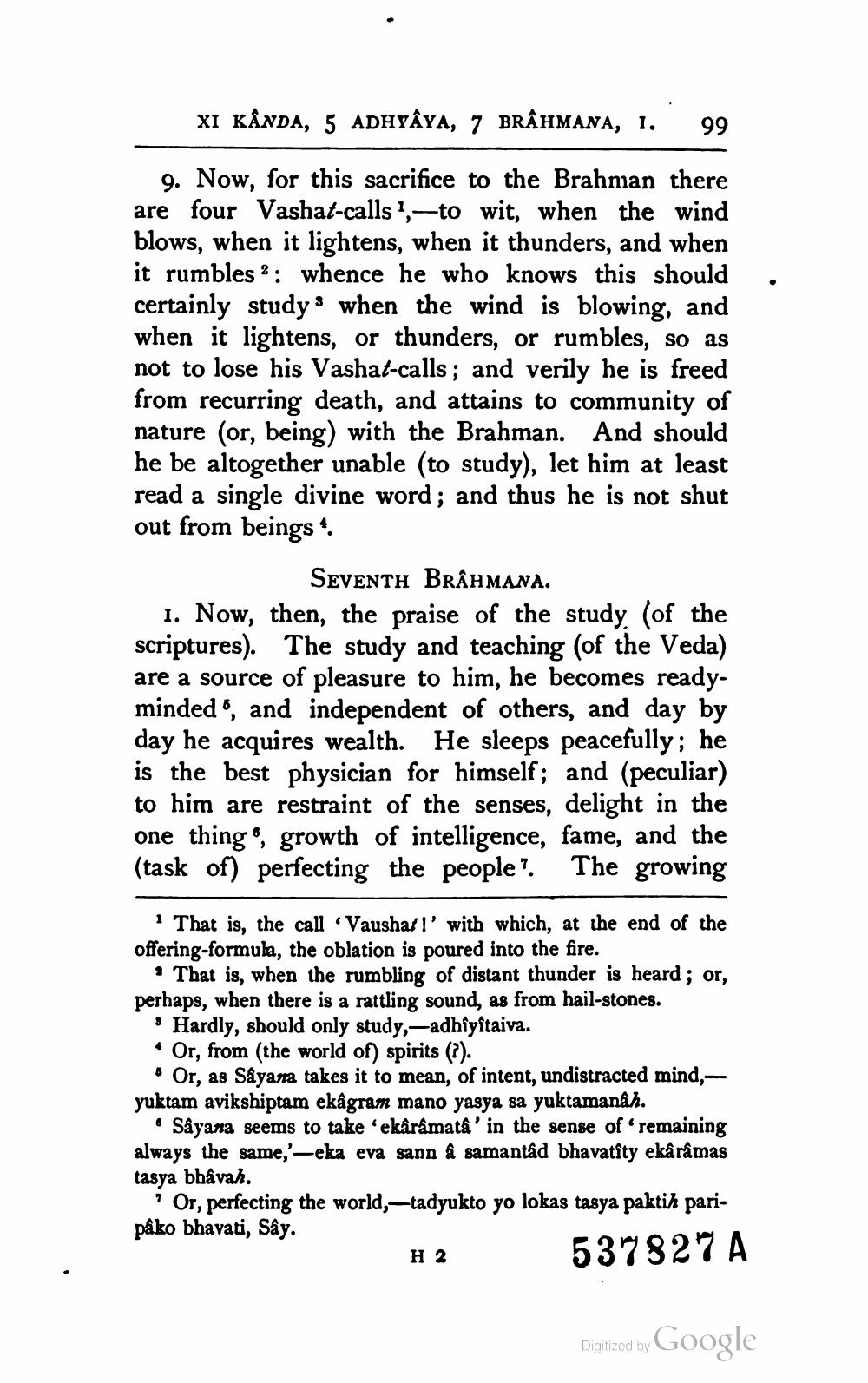________________
XI KANDA, 5 ADHYAYA, 7 BRAHMANA, 1. 99
9. Now, for this sacrifice to the Brahman there are four Vashat-calls 1,-to wit, when the wind blows, when it lightens, when it thunders, and when it rumbles whence he who knows this should certainly study when the wind is blowing, and when it lightens, or thunders, or rumbles, so as not to lose his Vashat-calls; and verily he is freed from recurring death, and attains to community of nature (or, being) with the Brahman. And should he be altogether unable (to study), let him at least read a single divine word; and thus he is not shut out from beings.
SEVENTH BRAHMANA.
1. Now, then, the praise of the study (of the scriptures). The study and teaching (of the Veda) are a source of pleasure to him, he becomes readyminded, and independent of others, and day by day he acquires wealth. He sleeps peacefully; he is the best physician for himself; and (peculiar) to him are restraint of the senses, delight in the one thing, growth of intelligence, fame, and the (task of) perfecting the people". The growing
That is, the call Vaushat!' with which, at the end of the offering-formula, the oblation is poured into the fire.
That is, when the rumbling of distant thunder is heard; or, perhaps, when there is a rattling sound, as from hail-stones.
Hardly, should only study,-adhîyîtaiva.
4
Or, from (the world of) spirits (?).
'Or, as Sâyana takes it to mean, of intent, undistracted mind,yuktam avikshiptam ekâgram mano yasya sa yuktamanâh.
• Sâyana seems to take 'ekârâmatâ' in the sense of 'remaining always the same,'-eka eva sann â samantâd bhavatîty ekârâmas tasya bhâvah.
"Or, perfecting the world,―tadyukto yo lokas tasya paktih paripâko bhavati, Sây.
537827 A
H 2
Digitized by
Google




